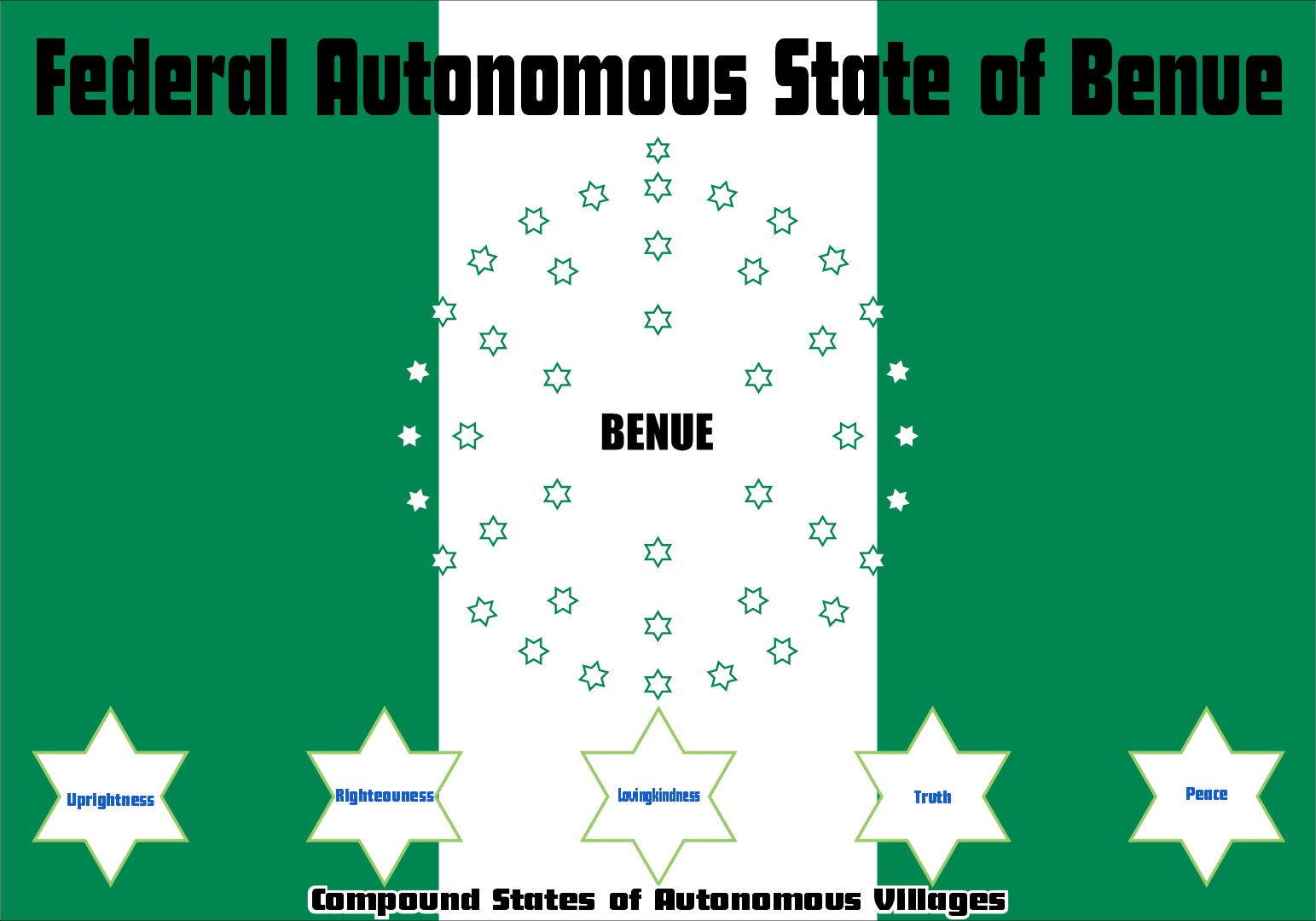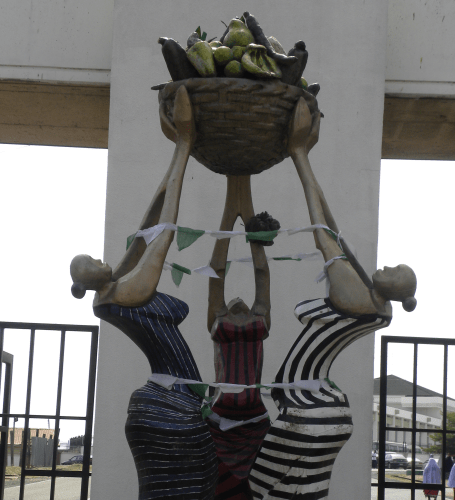Food Basket of the Nation
Benue STATE



Geography
Benue State lies within the lower river Benue trough in the middle belt region of Nigeria. Its geographic coordinates are longitude 7° 47′ and 10° 0′ East. Latitude 6° 25′ and 8° 8′ North; and shares boundaries with five other states namely: Nasarawa State to the north, Taraba State to the east, Cross-River State to the south, Enugu State to the south-west and Kogi State to the west. The state also shares a common boundary with the Nord-Ouest Province, claimed by both Ambazonia and the Republic of Cameroon in the south-east. Benue occupies a landmass of 34,059 square kilometres.

Politics & Economy
The State Government is led by a democratically elected Governor who works closely with members of the state’s House of Assembly. The capital city is Markudi.
Agriculture forms the backbone of the Benue State economy, engaging more than 70 per cent of the working population. This has made Benue the major source of food production in the Nation.
Benue State is the nation’s acclaimed food basket because of its rich agricultural produce which include Yam, Rice, Beans, Cassava, Sweet-potato, Maize, Soybean, Sorghum, Millet, Sesame, cocoyam etc. The state accounts for over 70% of Nigeria’s Soybean production.
Agriculture is the mainstay of the economy, engaging over 75% of the state farming population. The State also boasts of one of the longest stretches of river systems in the country with great potential for a viable fishing industry, dry season farming through irrigation and for an inland water highway.
The vegetation of the southern parts of the state is characterised by forests, which yield trees for timber and provide a suitable habitat for rare animals types and species. The state thus possesses potential for the development of viable forest and wildlife reserves.
Other cash crops include palm oil, melon, African pear, chili pepper, tomatoes etc. Food crops include Yam, Cassava, Sweet potato, Beans, Maize, Millet, Guinea corn, Vegetables etc. There is very little irrigation agriculture and techniques.
Animal production include, Cattle, Pork, Poultry and Goat but no dairy and dairy products yet.
The Zaki Ibiam International Yam Market is the biggest market for a single product in Nigeria
State History
Urbanization in Benue State did not predate the colonial era. The few towns established during colonial rule remained very small (less than 30,000 people) up to the creation of Benue State in 1976.
Benue towns can be categorised into three groups. The first group consists of those with a population of 80,000 to 500,000 people. These include Makurdi, the State Capital, Gboko and Otukpo the “headquarters” of the two dominant ethnic groups (125,944 and 88,958 people respectively). The second group comprises towns with a population of between 20,000 and 50,000 people and includes Katsina-Ala, Zaki-Biam, Ukum, and Adikpo, Kwande. These are all local government headquarters. The third category comprises towns with a population of 10,000 to 19,000 people and includes Vandeikya, Lessel, Ihugh, Naka, Adoka, Aliade, Okpoga, Igumale, Oju, Utonkon, Ugbokolo, Wannune, Ugbokpo, Otukpa, Ugba and Korinya. Most of these towns are headquarters of recently created Local Government Areas and/or district headquarters or major market areas. Some of the headquarters of the newly created LGAs have populations of less than 10,000 people. Such places include Tse-Agberaba, Gbajimba, Buruku, Idekpa, Obagaji and Obarikeito. Apart from earth roads, schools, periodic markets and chemists (local drug stores), the rural areas are largely used for farming, relying on the urban centres for most of their urban needs. Benue State has no problem of capital city primacy. Rather, three towns stand out very clearly as important urban centres which together account for more than 70 per cent of the social amenities provided in the state and almost all the industrial establishments. These centres are Makurdi, Gboko and Otukpo. They are amongst the oldest towns in the state and are growing at a much faster rate than the smaller younger towns.
Makurdi doubles as the capital of the state and the headquarters of Makurdi LGA, while Gboko, Otukpo and Oju double as the local government and ethnic headquarters (i.e. for Tiv, Idoma, and Igede). All the roads in the state radiate from these three centres. As an administrative unit, Benue State was first created on 3 February 1976. It was one of the seven states created by the military administration headed by General Murtala Mohammed, which increased the number of states in the country from 13 to 19. In 1991, its boundaries were re-adjusted with the creation of Kogi State. The new Benue State of today has twenty-three (23) local government areas, which are administered by local government councils.